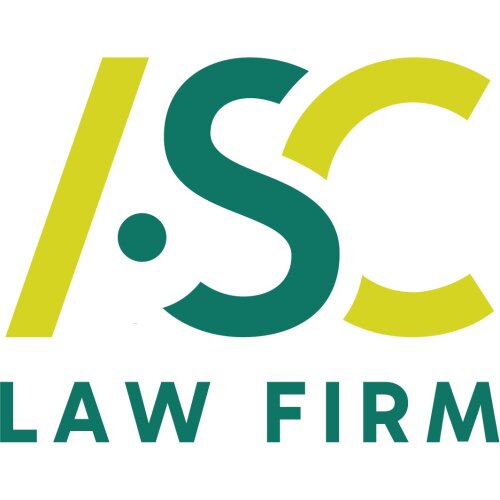Best Legal Document Lawyers in Cyprus
Share your needs with us, get contacted by law firms.
Free. Takes 2 min.
Or refine your search by selecting a city:
List of the best lawyers in Cyprus
About Legal Document Law in Cyprus
Legal document law in Cyprus encompasses the creation, execution, and enforcement of documents that have legal significance. These documents include contracts, wills, powers of attorney, affidavits, and other formal agreements. Cyprus’s legal framework for these documents is based on a combination of local statutes, common law principles, and EU regulations. Proper understanding and management of legal documents are crucial for ensuring rights are protected and obligations are clearly outlined.
Why You May Need a Lawyer
There are numerous situations where professional legal advice regarding legal documents is essential:
- Contract Drafting and Review: When entering into a business transaction, it’s important to ensure all terms are clearly stated and legally enforceable.
- Real Estate Transactions: Buying or selling property requires meticulous documentation to safeguard interests and compliance with local law.
- Creating a Will or Trust: To ensure that personal wishes are honored after death, a legally sound document is crucial.
- Power of Attorney: Empowering someone to act on your behalf necessitates a carefully drafted document to prevent misuse.
- Dispute Resolution: Legal counsel can be vital in interpreting and enforcing terms of a legal document in case of disagreement.
- Corporate Formation: Structuring a company requires documents like articles of incorporation, which need precision and compliance with Cypriot law.
Local Laws Overview
Cyprus inherits a mixed legal system influenced significantly by English common law with local modifications to suit specific needs.
- Contract Law: Cyprus primarily follows the principles of common law but has implemented statutes for specific contract types.
- Property Law: Governed by the Immovable Property Law and various regulations, property transactions must be carefully documented to ensure legality.
- Inheritance Law: Governed by the Wills and Succession Law, dictating how estates should be managed in the absence or presence of a will.
- Corporate Law: Based primarily on the Companies Law, provides for legal requirements regarding formation and management of companies.
Frequently Asked Questions
What constitutes a legally binding document in Cyprus?
A document becomes legally binding when it incorporates clear terms agreed upon by all parties, considers local law requirements, parties involved have the capacity to contract, and there is mutual consideration.
How can I ensure my contract is enforceable under Cypriot law?
To ensure enforceability, the contract must be explicit, include an offer and acceptance, involve consideration, be made by parties who have the authority and capacity, and not violate public policy or law.
Do I need a lawyer to draft my will in Cyprus?
While it is not mandatory, hiring a lawyer is strongly recommended to ensure that the will is clear, comprehensive, and complies with Cypriot legal formalities.
What are the requirements for a power of attorney in Cyprus?
A power of attorney must be in writing, clearly state the powers granted, and be signed by the principal. Depending on the type, execution in the presence of a lawyer or notary may be required.
How can disputes regarding legal documents be resolved in Cyprus?
Disputes can be resolved through negotiation, mediation, arbitration, or litigation in the courts, depending on the nature of the disagreement and the terms within the document.
What legal documents are required to purchase property in Cyprus?
Essential documents include a Sales Contract, title deeds, proof of financial means, tax clearances, and possibly bank loan agreements if applicable.
How can a company be legally recognized in Cyprus?
By registering with the Department of Registrar of Companies and through submission of necessary documents like the memorandum of association, articles of association, and resolution of share capital.
Are electronic signatures valid on legal documents in Cyprus?
Yes, electronic signatures can be legally recognized under certain conditions per the relevant EU regulations and local standards.
Do legal documents need to be in Greek or English in Cyprus?
Legal documents can be in Greek or English, but official filings often require translation into Greek. It’s advisable to consult with legal professionals for specific needs.
What happens if a legal document is not notarized in Cyprus?
While notarization is not always necessary, certain documents such as powers of attorney or affidavits typically require notarization to be considered valid.
Additional Resources
For further information or assistance, consider the following resources:
- Cyprus Bar Association: The professional legal organization in Cyprus, which can help in locating certified legal professionals.
- Department of Registrar of Companies and Official Receiver: Responsible for company registration and compliance.
- Cyprus Land Registry: Information on property laws and registration procedures.
- Citizens Service Centres: Provide useful information and administrative support regarding a range of public services, including legal matters.
Next Steps
If you need legal assistance with a legal document in Cyprus, consider the following steps:
- Identify Your Needs: Clearly define what legal help you require, whether it’s drafting, review, or dispute resolution.
- Consult a Qualified Lawyer: Engage a lawyer with expertise in the specific area of law relevant to your document.
- Gather Necessary Information: Collect all pertinent details and documents needed to support your case or transaction.
- Understand Legal Fees: Discuss and clarify the fee structure and terms with the lawyer upfront to avoid surprises.
- Proceed with Drafting or Action: Work closely with your lawyer to ensure your legal documents meet all legal requirements.
Lawzana helps you find the best lawyers and law firms in Cyprus through a curated and pre-screened list of qualified legal professionals. Our platform offers rankings and detailed profiles of attorneys and law firms, allowing you to compare based on practice areas, including Legal Document, experience, and client feedback.
Each profile includes a description of the firm's areas of practice, client reviews, team members and partners, year of establishment, spoken languages, office locations, contact information, social media presence, and any published articles or resources. Most firms on our platform speak English and are experienced in both local and international legal matters.
Get a quote from top-rated law firms in Cyprus — quickly, securely, and without unnecessary hassle.
Disclaimer:
The information provided on this page is for general informational purposes only and does not constitute legal advice. While we strive to ensure the accuracy and relevance of the content, legal information may change over time, and interpretations of the law can vary. You should always consult with a qualified legal professional for advice specific to your situation.
We disclaim all liability for actions taken or not taken based on the content of this page. If you believe any information is incorrect or outdated, please contact us, and we will review and update it where appropriate.
Browse legal document law firms by city in Cyprus
Refine your search by selecting a city.















